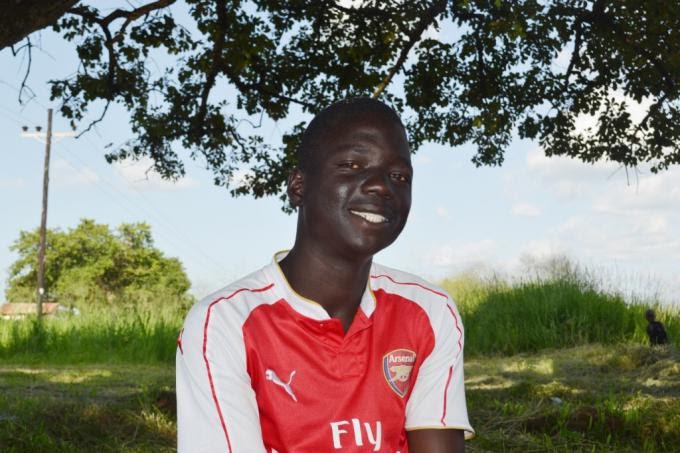Nineteen-year-old Patrick Otukene, from Patalira Village, Gulu District, lost both his parents as a young boy.
Patrick Otukene was trained in Tin Smith under Save the Children YIELD Project, now he is a local artisan trainer with the new Youth Empowerment Bulgari Project.
Under the guardianship of his uncle Christopher Ojok, Otukene attended Bungatira Primary School, where he completed his primary education.
“At that point, I sat home because uncle was not able to pay school fees for my higher education. My big break came when I joined Save the Children’s YIELD programme. After I was taken into the programme, I went to St. Joseph Technical School where I trained in Tin Smith and Iron Casting. I create kitchenware and home appliances from melted aluminum,” says Otukene.
Starting own business
“I started out on my own in 2015 using the start-up capital that I got from Save the Children at the end of my training. First, I invested the money by planting a garden of cassava. After selling the cassava, I bought the material to start with.
“It was not easy at the beginning, the customers were not readily available, but as of now, I have sold so many cooking pots than I care to count,” he proudly says.
That, however, doesn’t mean that he doesn’t have challenges.
“I still lack tools to make certain designs. I would love to make the charcoal flat iron as well as some other intricate designs of saucepans that my customers want but the tools needed to make all this are expensive. Also, the customers are seasonal… people here depend on cassava to make money. When the cassava season is bad, they complain that they can’t afford my products,” he says.
Otukene also pays rent for the place where he carries out his business, which is more challenging when the customers are few.
Trainee turned trainer
In order to build his capital and also pass the acquired skills to youth who need them, Otukene registered with Youth Empowerment Bulgari (a new Save the Children livelihood project) as a local artisan to offer training through apprenticeship to youth interested in Tin Smith.
“I have ten trainees under me,” he says. “I will be paid for my services as the artisan, which means that, in the long run, I will be able to afford more tools to make intricate designs and even train more youth in my area,” he adds.
“I’m grateful to Save the Children for giving me the chance to give back to my community. I feel good delivering to other youth the skills that I’ve attained as a result of being a beneficiary of Save the Children programmes first as a trainee, now as a local artisan training other trainees. This training is making me even more skilled,” he adds with a smile.
Otukene is part of a Village Savings and Loans Association (VSLA) under Youth Empowerment Bulgari.
“When you are in a group, you are encouraged to save everyday. But I am also able to get a loan to expand my business and buy the missing items,” he explains.
Otukene has also got business management skills from trainings offered by the VSLA, as well as record keeping.
“I am already applying these skills to my business. I reflect on all this when I am planning: when I’m going to buy material to make cooking pots, I have to calculate all the expenses involved in production so that every bit of it is reflected in the final price that I sell them for. That way, I can keep my business running,” he says.
Otukene has big plans. In five years’ time, he would like his workshop to have expanded into one that can not only supply his sub-county Patiko but the whole of Gulu district.
And he has some advice for his fellow youth.
“Some young people feel sorry for themselves, but they are the masters of their future. Even though they may have nothing now, they can change the course of their future. I implore them to think about their future and work towards it … nothing comes easy. I encourage then to take advantage of the available opportunities,” he says.











